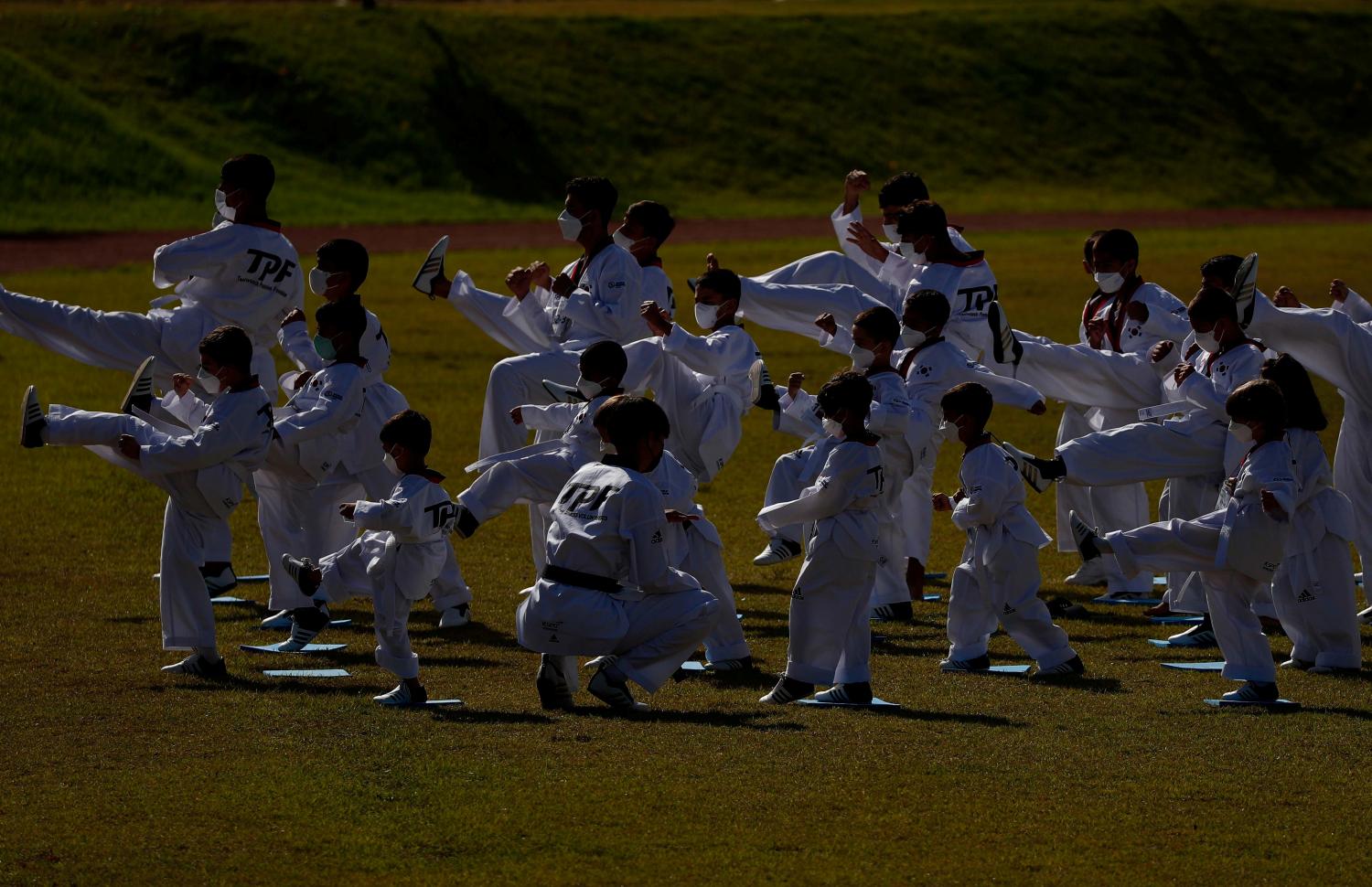
How countries react to human rights issues in Afghanistan speaks volumes about their real commitment towards the principles of democracy and civil liberties.
In East Asia, responses have varied. Japan, for example, has been criticised even by its own media for its slow response in assisting Afghan refugees. When the government did take action, it was only able to rescue 14 Afghans at the end of August.
Even Indonesia has outdone Japan's meagre effort by accepting at least 33 people. China dodged the idea of accepting refugees completely -- by clinging to its mission to rebuild Afghanistan in the long term.
Standing in contrast to the two major powers in East Asia, South Korea is cementing both its middle-power status and its inspiring pro-humanitarian policy by welcoming Afghans who contributed to the country's rescue and development mission before the Taliban took over.
In Seoul, the government has shown its creativity and liberal spirit by labeling Afghans "persons of special merit" rather than using the tautological term "refugees" in an attempt to quell anti-immigrant sentiment in the country.
Like many developed countries, immigration is a controversial issue in South Korea, where a majority of citizens value ethnic homogeneity over diversity. However, the findings of a recent Realmeter poll contradicted this long-held conservative view, with 70% of South Koreans in favour of the government's plans to grant special status to its erstwhile Afghan collaborators.
The change of national opinion stems from the South Korean government's subtle effort to justify why Seoul should partake in the rescue mission. President Moon Jae-in asserted that the country had a "moral responsibility" to the Afghan people by reminding people of how South Korea, itself once a backwater, had benefited from international assistance during and after the 1950-53 Korean War.
The government did more than just open the door, however. It has ensured these Afghans will benefit from a high-quality social integration programme when settling into Korean society. To prepare them to live sustainably in this new land, Afghan evacuees were provided with shelter in Jincheon, North Chungcheong Province, and will soon receive F-2 visas permitting them to work.
One of the reasons given for accepting them into the country is the relationship Seoul has built with the Afghan people over more than a decade. Afghans and South Koreans have been working to rebuild the war-scarred nation. During that period, various professionals from both sides in fields such as IT, diplomacy, development, interpreting and medicine cooperated with the constant presence of the Korean government, embassy and hospitals supported by the country. The bilateral relationship has grown from there and continues to flourish.
Unlike most Asia-Pacific powers, the South Korean government has been explicit in its pursuance of middle-power status. Nevertheless, Mr Moon's administration chose its latest forward-looking foreign policy by changing society's negative attitude towards refugees.
In spite of the progress made, South Korea's role as a middle power remains clouded by US-China rivalry in the region. Indeed, Seoul has been working hard to avoid being labelled as one of the states in the anti-China camp.
Although Seoul has been trying to fulfill other human rights foreign-policy obligations, such as its role in helping the people of Myanmar and Afghanistan who have been affected by the atrocities in their countries, it has gone to great lengths to avoid doing anything to upset China.
If South Korea wants to be seen as truly committed to becoming a genuine middle power, it has to be brave enough to do the most fundamental thing, which is to be an agenda-setter in the Afghanistan crisis.
Seoul should indeed leverage its special relationship with China to convince Beijing to adopt a more humanitarian policy and turn against the Taliban, who have been committing egregious human rights abuses on a daily basis.
A recent attack in the northern Afghan city of Kunduz last week demonstrated that China cannot trust the Taliban to ensure people's safety and keep its promises of preventing any other terrorist organisations in finding safe haven in Afghanistan.
Similarly, Seoul could use its knack for wielding soft power -- popular cultural products and content -- to persuade the people of Australia, India, and Asean countries to put pressure on their own governments to do more about the Afghanistan crisis.
In other words, Seoul can use its soft power expertise to shape the narrative and direct other countries to do more about the atrocities committed by the Taliban.
South Korea has already proved to the international community that it can rise from being one of the poorest countries in the world to one of the richest and most civilised.
The last puzzle that Seoul needs to solve is how to become a better and more effective promoter of democracy than the Western powers. At present, there is no better litmus test for South Korea's middle-power aspirations than the situation in Aghanistan.
Thanapat Pekanan is a research associate with the Institute of Security and International Studies (ISIS) at Chulalongkorn University's Faculty of Political Science.